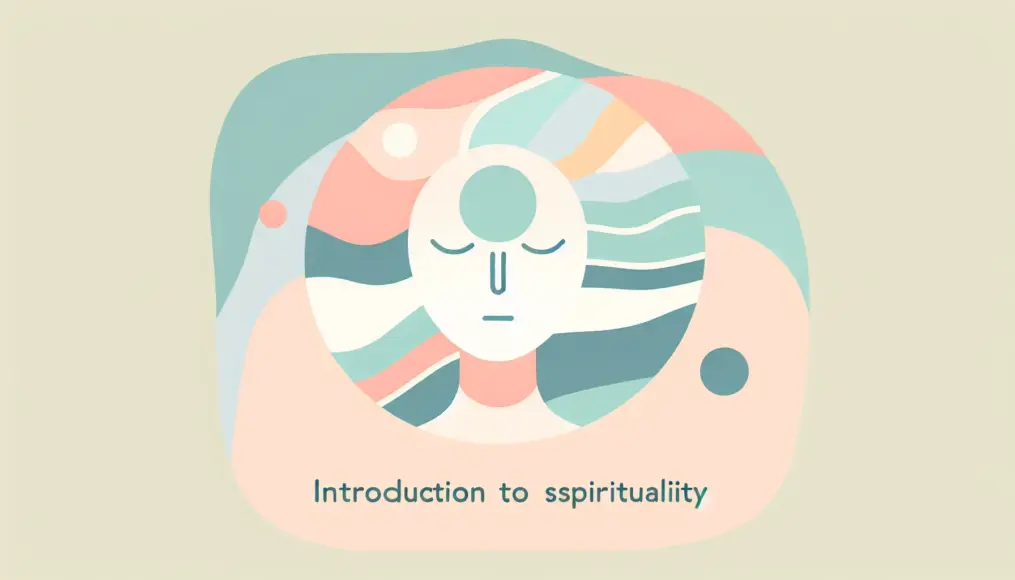The phenomenon of school refusal can be a significant challenge for children and their families. However, it often conceals hidden opportunities for growth. By exploring this issue from a spiritual perspective, we may discover ways to foster emotional development and pave the way for a brighter future.
In this article, we will delve into the underlying causes of school refusal and its impact on mental well-being, while also examining how a spiritual approach can facilitate healing. We’ll share practical methods and easily adoptable habits that can be integrated into daily life, so let’s embark on this journey of learning together.
- Gain a deeper understanding of the causes of school refusal and its effects on mental health
- Explore the connection to spiritual growth
- Discover practical techniques through meditation and journaling
Understanding School Refusal: Causes and Impacts
School refusal is a sensitive issue that affects not only children but also their families. Understanding the reasons behind a child’s reluctance to attend school is crucial for fostering emotional growth and exploring healing from a spiritual perspective. In this article, we’ll delve into the causes of school refusal and its impact on mental health. By gaining a deeper understanding, we may find effective ways to offer support.
What Causes School Refusal?
The reasons for school refusal are diverse and vary from child to child. Often, psychological factors, social pressures, and family environments intertwine in complex ways. A common source of stress is the relationships children have at school, along with the academic pressures they face. As children try to adapt to their environment, they often feel a heavy burden.
Additionally, the influence of social media and the internet has become increasingly significant in recent years. Excessive information and comparisons with others can lead to a decline in self-esteem. By recognizing these challenges, parents and others in a child’s life can provide more effective support.
- School refusal often stems from psychological, social, and familial factors.
- Relationships at school and academic stress play a significant role.
- Social media and the internet can contribute to decreased self-esteem.
The Impact of School Refusal on Mental Health
When school refusal persists, it can have various effects on a child’s mental well-being. One of the most notable impacts is a decline in self-esteem. Children may begin to question their worth and purpose when they are not attending school. Feelings of loneliness and anxiety can intensify, and as social interactions decrease, their mental health may be further jeopardized.
In such situations, a spiritual approach can be beneficial. Practices like meditation to calm the mind, or journaling for self-reflection, may promote inner growth. It’s particularly important to incorporate spiritual perspectives during times when emotional care is needed.

If you’re interested in this topic, I recommend checking out our article on spiritual growth and practices: “Opening the Door to Spirituality: Essential Steps for Beginners.” This piece offers step-by-step guidance on specific methods and knowledge to facilitate spiritual growth, leading you to a deeper understanding.
- Prolonged school refusal can lead to decreased self-esteem.
- Feelings of loneliness and anxiety may become more pronounced.
- A spiritual approach can aid in emotional care.
Understanding School Refusal from a Spiritual Perspective
The experience of school refusal can have a significant impact on one’s mental well-being, making it essential to approach it from a spiritual perspective. Spirituality relates to our inner selves and personal growth, and many people embrace it as a way to foster emotional development. In this section, we’ll explore the fundamental concepts of spirituality and how they connect to the experience of school refusal, potentially uncovering insights to support emotional growth.
What is Spirituality?
At its core, spirituality is about seeking a deeper understanding of our existence and way of life. It goes beyond mere religious beliefs, emphasizing the importance of feeling connected to ourselves and others. By adopting a spiritual perspective, we can cherish the small miracles and moments of gratitude in our daily lives, ultimately achieving a sense of inner peace.
Especially in the context of school refusal, a spiritual approach can provide a sense of stability and calm. Practices like meditation and self-reflection can enhance self-awareness and attract positive energy, creating a foundation for inner growth.
- Spirituality seeks a deeper understanding of existence and life.
- It values connections with oneself and others.
- It can help bring emotional stability during school refusal.
The Connection Between School Refusal and Spiritual Growth
The experience of school refusal can sometimes serve as a significant opportunity for personal growth. Being unable to attend school can provide the time needed to reflect on oneself and one’s circumstances. By valuing this time and turning inward, individuals may gain deeper insights and realizations.
Spiritual growth is closely tied to fostering self-acceptance and self-worth. By learning to care for oneself, relationships with others can also improve. The period of school refusal can be a wonderful opportunity for emotional growth, so it’s essential to embrace one’s feelings and thoughts without fear.
- School refusal can be a chance for self-reflection.
- Spiritual growth fosters self-acceptance and self-worth.
- Caring for oneself can enhance relationships with others.
The Importance of Building Habits
For those experiencing a period of school avoidance, it can be a crucial time for healing and personal growth. To make the most of this time, establishing daily habits is vital. Developing routines can lead to emotional stability and foster spiritual growth. Let’s explore some practical ways to incorporate beneficial habits into your daily life.
What Habits Can You Incorporate into Your Daily Life?
There are several easy-to-adopt habits that can enhance your daily routine. First and foremost, creating a daily routine is essential. For instance, setting aside a few minutes for meditation each morning can help calm your mind. By integrating spiritual practices that resonate with you, you can pave the way for emotional growth.
Additionally, cultivating an attitude of gratitude can also become a powerful habit. Taking a moment to appreciate even the smallest things can attract positive energy and help maintain emotional balance. By consistently practicing these habits, you can uncover a better version of yourself.
- Creating a daily routine is essential
- Calm your mind with morning meditation
- Cultivating gratitude attracts positive energy
Examples of Positive Habits
To develop positive habits, it’s helpful to know some specific practices you can implement. For example, daily journaling is an excellent way to organize your thoughts and emotions. By putting your feelings into words, you can gain a deeper understanding of yourself and promote emotional growth.
Moreover, intentionally spending time in nature can have a significant positive impact on your well-being. Activities like walking or hiking allow you to refresh your mind while reconnecting with your body. By incorporating these positive habits into your daily life, you can transform your experience of school avoidance into something meaningful.
- Organize your emotions through daily journaling
- Be intentional about spending time in nature
- Foster emotional growth by adopting positive habits
Practical Techniques for Self-Reflection
Taking a break from school can be an excellent opportunity for self-reflection. This time can be used to sort through your thoughts and feelings, leading to a better understanding of yourself. Incorporating practices like meditation and journaling can be particularly effective for mental clarity and personal growth. In this section, we’ll explore each method in detail.
The Benefits of Meditation
Meditation is a fantastic way to calm your mind. By finding a quiet space, closing your eyes, and focusing on your breath, you can turn your attention inward. During a time when school may feel overwhelming, you might find yourself filled with anxiety and worries, but meditation can help you organize those thoughts.
The benefits of meditation are numerous, including stress reduction, improved concentration, and emotional stability. By practicing even a little each day, you can regain a sense of peace and foster your spiritual growth.
- Meditation helps calm the mind
- Focusing inward can help you sort through anxiety and worries
- It offers benefits like stress reduction and enhanced concentration
Organizing Your Mind Through Journaling
Journaling is a method of organizing your emotions and thoughts through writing. By taking a few moments each day to jot down your feelings and experiences, you can alleviate the mental clutter. It also allows you to reflect on your growth and changes, offering insights from a spiritual perspective.
There are no strict rules when it comes to journaling; the key is to express yourself freely. For instance, writing about things you’re grateful for or small daily joys can help attract positive energy into your life. Through this practice, you can gain a deeper understanding of yourself and foster your emotional growth.
- Journaling is a way to organize emotions and thoughts
- It allows for reflection on personal growth and changes
- Free expression can attract positive energy into your life
Summary
Experiencing school refusal can be a crucial opportunity for personal growth. By incorporating a spiritual perspective, you can take a moment to reflect on yourself and encourage inner development. Engaging in practices like meditation and journaling can help you cultivate positive habits in your daily life, ultimately aiding in your emotional healing. Taking time to care for yourself will empower your future self significantly.
In this article, we explored the background and impact of school refusal, along with approaches from a spiritual viewpoint. By applying this knowledge, you can find balance and take a confident step forward. Remember to grow at your own pace and keep a positive outlook as you move ahead.
- School refusal is an opportunity for emotional growth
- A spiritual perspective allows for deeper self-reflection
- Positive habits can be developed through meditation and journaling
We’re cheering for your personal growth. We encourage you to take the time for self-care, using this article as a reference. We would also love for you to share your thoughts and experiences in the comments section!


Comment